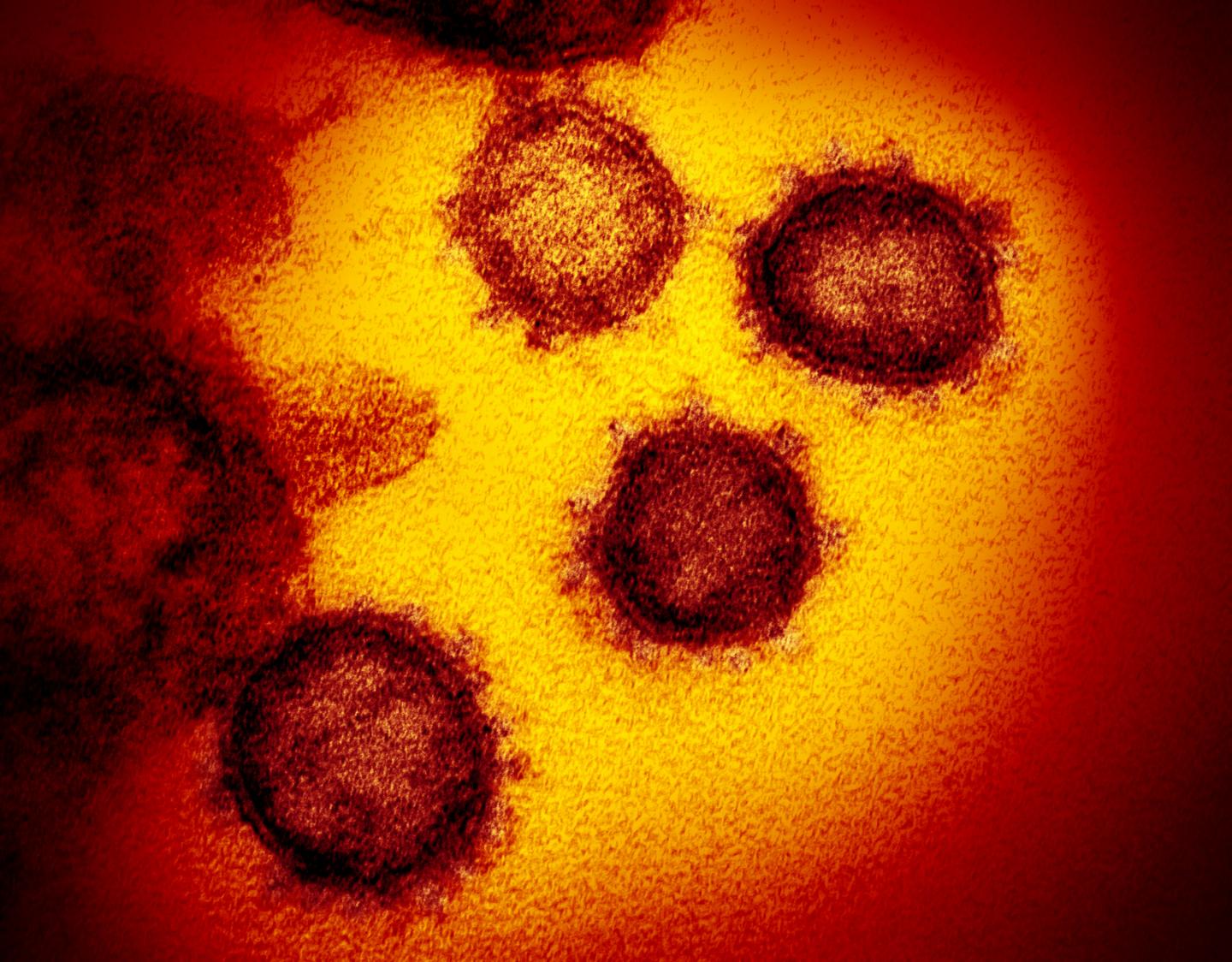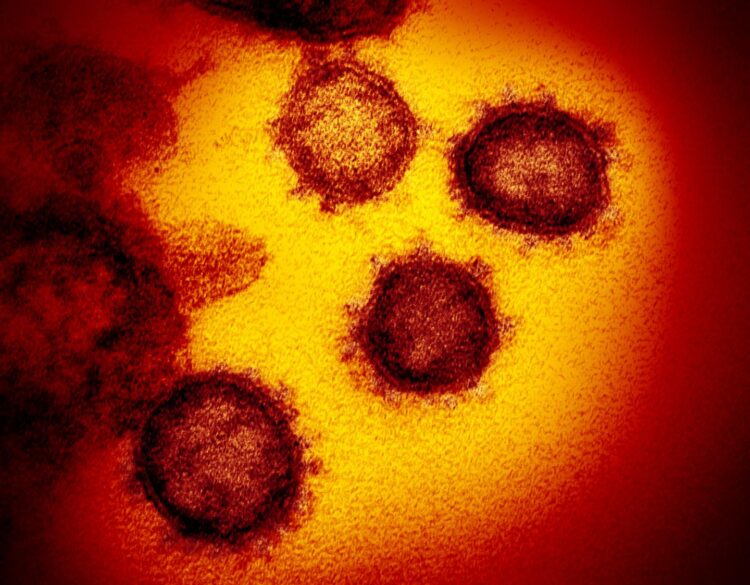
Credit: NIAID
A clinical trial testing the safety and efficacy of an investigational monoclonal antibody for treating people who are hospitalized with respiratory disease and low blood oxygen due to infection with SARS-CoV-2, the virus that causes COVID-19, has begun. The Phase 2 trial, called the COVID-19 anti-CD14 Treatment Trial (CaTT), is sponsored and funded by the National Institute of Allergy and Infectious Diseases (NIAID), part of the National Institutes of Health.
The laboratory-created monoclonal antibody, called IC14, binds to a human protein, CD14, that is found on the surface of immune cells circulating in the blood and airway fluid and that also circulates as a stand-alone protein. CD14 helps immune cells recognize pathogens and injured or dying cells, alerting the immune system to danger and prompting it to respond.
Research suggests that during SARS-CoV-2 infection in the lungs, CD14 overamplifies the later stages of the immune response to the virus, potentially leading to a hyperactive inflammatory response and a “cytokine storm.” Cytokines, proteins secreted by immune cells, influence the immune response. A cytokine storm is a severe immune reaction in which the body rapidly releases numerous cytokines into the blood and tissues. In COVID-19 patients, a cytokine storm may generate dangerous levels of inflammation and tissue damage in the lungs, resulting in acute respiratory distress syndrome and respiratory failure.
“By blocking a protein called CD14 during the early stages of COVID-19 respiratory disease, the monoclonal antibody IC14 could potentially temper the immune system’s harmful inflammatory responses to SARS-CoV-2, thereby limiting associated tissue damage and improving patients’ health outcomes,” said NIAID Director Anthony S. Fauci, M.D.
The CaTT study will enroll between 300 and 350 hospitalized COVID-19 patients aged 18 years or older at 10 to 15 sites nationwide. Volunteer participants will be assigned at random to receive intravenous infusions of either IC14 or a placebo for four days. Neither the participants nor the study team will know who receives the monoclonal antibody or the placebo until the end of the trial. All participants will also receive intravenous infusions of the antiviral drug remdesivir for five consecutive days. The study team will follow participants for 60 days. Results are expected in early 2022.
The main goal of the CaTT study is to determine whether treatment with IC14 decreases the time it takes people with COVID-19 respiratory disease to recover such that they no longer need ongoing medical care in the hospital. Secondary goals are to determine the safety of IC14 in the study population and the efficacy of the drug at reducing the severity of COVID-19 respiratory disease. If the results of the CaTT study are promising, then IC14 may be tested in a larger Phase 3 efficacy trial.
Leading the CaTT study are protocol co-chairs Mark M. Wurfel, M.D., Ph.D., professor of medicine, and Thomas R. Martin, M.D., emeritus professor of medicine, in the Division of Pulmonary, Critical Care and Sleep Medicine at University of Washington in Seattle. The NIAID-funded Immune Tolerance Network is providing operational support for the trial, for which the coordinating center is based at Vanderbilt University in Nashville, Tennessee. Implicit Bioscience Ltd. of Seattle and Brisbane, Australia will provide IC14 for the study, and Gilead Sciences, Inc. of Foster City, California will provide remdesivir.
An independent data and safety monitoring board (DSMB) will review interim data from the trial to ensure patient well-being and safety as well as study integrity.
Further information about the CaTT study is available at ClinicalTrials.gov under study identifier NCT04391309.
###
NIAID conducts and supports research–at NIH, throughout the United States, and worldwide–to study the causes of infectious and immune-mediated diseases, and to develop better means of preventing, diagnosing and treating these illnesses. News releases, fact sheets and other NIAID-related materials are available on the NIAID website.
About the National Institutes of Health (NIH): NIH, the nation’s medical research agency, includes 27 Institutes and Centers and is a component of the U.S. Department of Health and Human Services. NIH is the primary federal agency conducting and supporting basic, clinical, and translational medical research, and is investigating the causes, treatments, and cures for both common and rare diseases. For more information about NIH and its programs, visit http://www.
Media Contact
Laura Leifman
[email protected]





